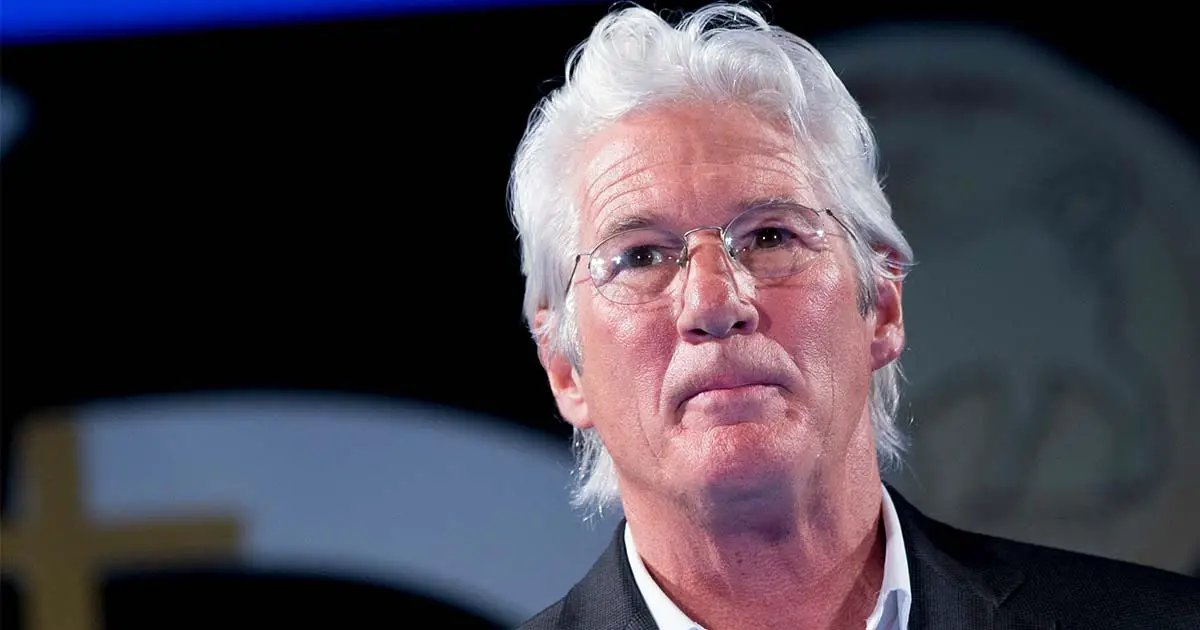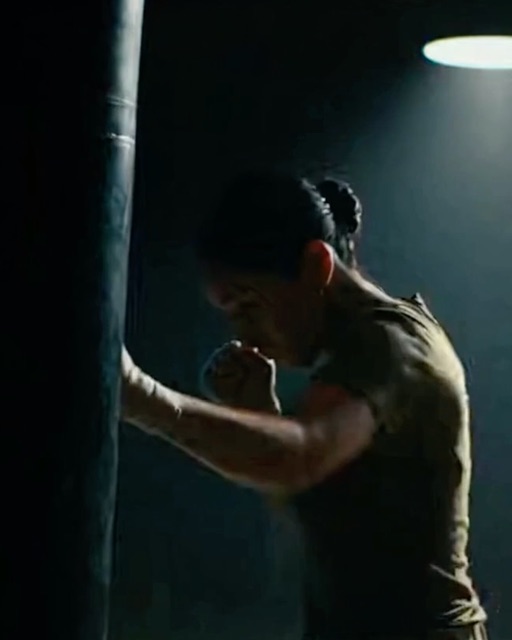Richard Gere, widely celebrated for his roles in beloved films like Pretty Woman and An Officer and a Gentleman, first discovered his passion for acting during high school. His interest was piqued when he created several amateur musical productions, though it wasn’t immediate that Gere recognized the stage as his true calling.
Choosing to follow his heart, Gere left university to pursue acting, only to encounter several challenging productions. This situation prompted him to move to London, England, where he secured the role of Danny Zuko in the musical Grease. Once the show was scheduled to open in New York, Gere opted to return to the United States, eventually appearing on Broadway.
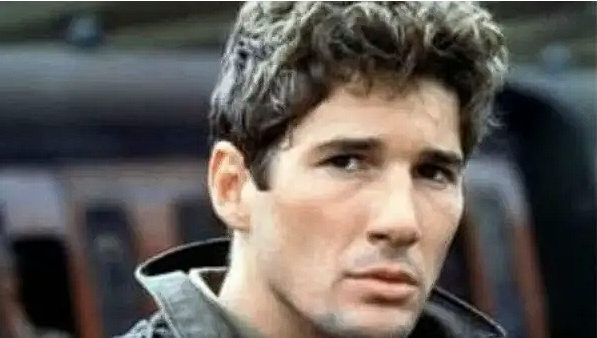
1977 marked Gere’s big break with the film Looking for Mr. Goodbar, wherein he starred alongside Diane Keaton. The following year, he landed a significant role in Days of Heaven, and by 1980, Gere was starring in American Gigolo.
Pretty Woman, a standout in the romantic comedy genre, secured Gere’s place in Hollywood history. He credits his co-star, Julia Roberts, for persuading him to take the role. Reminiscing during an interview with Smooth Radio in 2015, Gere recited how Roberts convinced him with a sweet note saying, “Please say yes,” which ultimately led him to agree to the project.
Despite his eventual success, there was a time when Gere felt he had jeopardized his career. Reflecting on this period, Gere shared in a 1993 interview with Movieline magazine that neither Pretty Woman nor An Officer and a Gentleman initially interested him. He recalled how his friend Jeffrey Katzenberg, who worked at Paramount and then Disney, persistently encouraged him to take these roles, especially during a phase where Gere had retreated from the limelight.
Gere’s decision to participate in Internal Affairs was equally challenging, as he feared it might not be well-received. However, over time, he discovered new aspects of himself and found a freer style of acting through these experiences, which has shaped his career ever since.
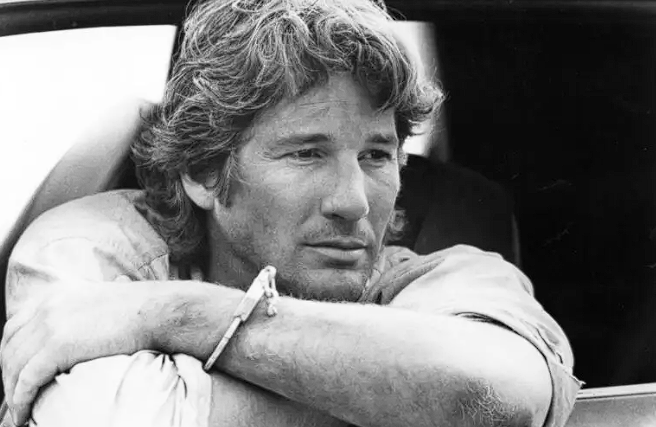
Although Pretty Woman was pivotal, Gere later described it as a “silly” film, even lamenting that it glorified the financial sector in a way that he believed contributed to later economic issues.
Yet, Gere’s career successes are undeniable. It’s reported that he commands between $5 million and $10 million per film, and Celebrity Net Worth estimates his value at approximately $120 million.
In 1999, Richard Gere was hailed as People Magazine’s Sexiest Man Alive, not surprising given his dashing looks and charm, which have accompanied romantic involvements with several notable women.
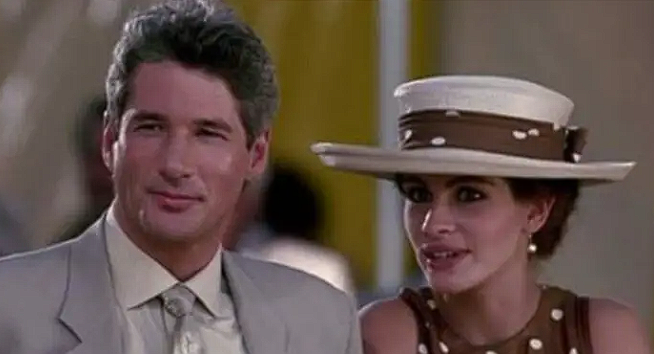
Gere’s personal life included a marriage to model Cindy Crawford in 1991, which lasted four years despite a significant age gap. In 2002, he married Carey Lowell, with whom he has a son, Homer James Jigme Gere. However, their marriage ended in 2013 after a prolonged separation.
Currently, Gere is happily married to Alejandra Silva, and together they have two sons. Alejandra expressed her deep admiration for Gere, describing him as humble and loving, which has made their relationship fulfilling and rewarding.
Besides his film career, Gere is also recognized for his spiritual journey. A practicing Buddhist, he considers meeting the Dalai Lama a transformative experience, resulting in a profound friendship.
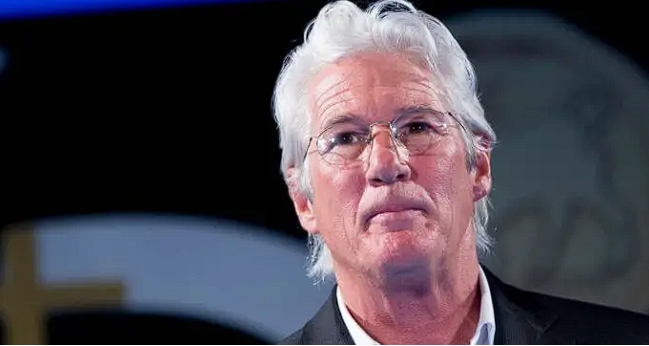
Gere recalled his first meeting with His Holiness with humor, sharing how the Dalai Lama questioned the authenticity of his emotions in acting, leading to laughter over the notion of performed emotions versus real ones.
Gere’s outspoken advocacy for Tibet has significantly impacted his career. In 1993, during the Academy Awards, he used the opportunity to criticize China’s occupation of Tibet, a move that displeased the Oscars’ producer, Gil Cates, resulting in Gere’s long-standing exclusion from the event.
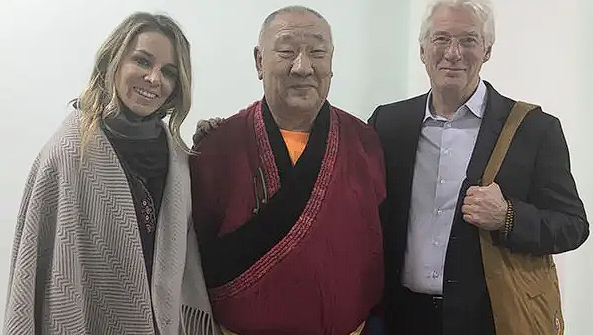
Despite facing professional setbacks due to his political beliefs, Gere remains devoted to his principles, even at the expense of blockbuster opportunities in China.
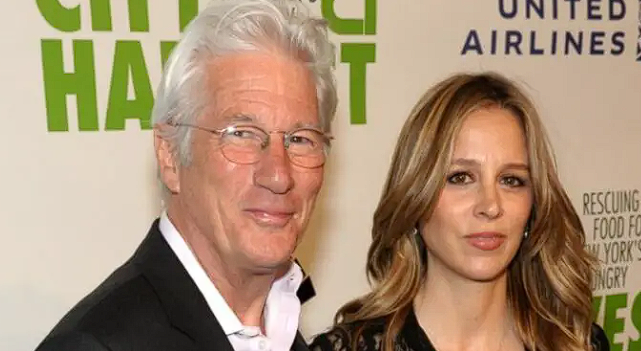
Gere prioritizes his values over financial gain, a testament to his unwavering commitment to advocacy and truth, a choice that undeniably shaped his distinctive path.
